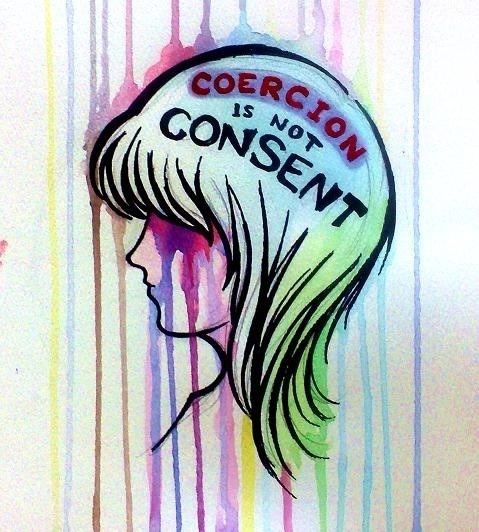
If someone makes you feel obligated or forced to do something you don’t want to, you may be experiencing coercion. By definition, sexual coercion is “the act of using pressure, alcohol or drugs, or force to have sexual contact with someone against his or her will” and includes “persistent attempts to have sexual contact with someone who has already refused.”
Think of sexual coercion as a spectrum or a range. It can vary from someone verbally egging you on to someone actually forcing you to have contact with them. It can be verbal and emotional, in the form of statements that make you feel pressure, guilt or shame. You can also be made to feel forced through more subtle actions. For example, your partner might:
- Make you feel like you owe them — for example, because you’re in a relationship, because you’ve had sex before, because they spent money on you or bought you a gift, because you go home with them
- Give you compliments that sound extreme or insincere as an attempt to get you to agree to something
- Badger you, yell at you, or hold you down
- Give you drugs and alcohol to loosen up your inhibitions
- Play on the fact that you’re in a relationship, saying things such as: “Sex is the way to prove your love for me” or “If I don’t get sex from you I’ll get it somewhere else”
- React negatively (with sadness, anger or resentment) if you say no or don’t immediately agree to something
- Continue to pressure you after you say no
- Make you feel threatened or afraid of what might happen if you say no
- Try to normalize their sexual expectations — for example, “I need it, I’m a guy.”
In a relationship where sexual coercion is occurring, there is a lack of consent, and the coercive partner doesn’t respect the boundaries or wishes of the other
|

No comments:
Post a Comment